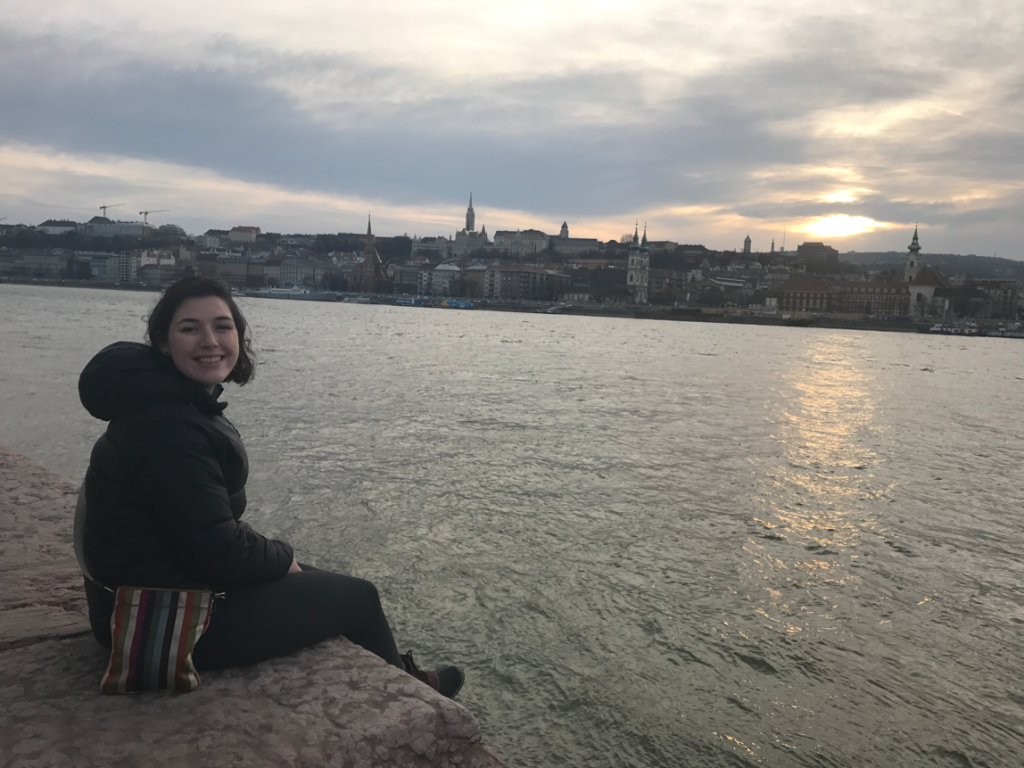
Culture Shock is a blog that analyzes the experiences, from awkward to awe-inspiring, of moving abroad for a semester as junior Annie Cappetta studies in the Czech Republic.
Americans may no longer be allowed to travel in the European Union without visas. In early March, the European Parliament passed a resolution that recommends travel restrictions begin enforcement by May. While the European Commission, the body that would need to vote on enforcing this, has said it will work with the United States and not release an update until at least June, the Parliament could take further action to force the decision.
When I found out about this decision, I was in Budapest, strolling along the Danube. The river connects four capital cities of East-Central Europe – Vienna, Bratislava, Budapest and Belgrade – along with countless other cities and towns that sustain the region. With a ticket I bought less than two weeks earlier, I hopped on a train in Prague and arrived the next morning.

The weekend before Hungary, I went to Brussels and Amsterdam; the weekend after, I saw Brno and Krakow. Each time, there were no hassles.
Even if the EU solves this dispute through diplomacy and our visa-free travel continues, it may not mean very much because the EU and globalization itself are unraveling in favor of nationalist revivals.
As I walked along the Danube, I passed the Hungarian Parliament, a beautiful but imposing building that houses one of the most radical right-wing governments in Europe. It has passed a resolution calling for “border hunters” to stop refugees from seeking asylum in Hungary. The ultra-nationalist Prime Minister Viktor Orbán called these people a “Trojan horse for terrorism.”
Hungary, which was not occupied by Germany in World War II until 1944 but had its own fascist government aligned with Hitler, has shown increases in anti-Semitism. The right-wing government even built a commemorative statue in 2014 for the “victims of the German-occupation,” leaving the Jewish population unnamed and erasing the complicity of the Hungarian nation.

The United States has always been a multinational, ethnically-diverse country, despite the best efforts of certain white supremacists and radical Christian groups – and some would argue President Trump – that wish to define America as white and protestant. Americans define our nationhood civically, meaning a passion for our constitution, our states and occasionally our McDonald’s.
It’s hard for Americans, or it has been particularly hard for me, to understand the deep, sometimes vitriolic nationalism that exists in almost every European nation. In my history classes here, nationalist movements are thanked for the liberation of small nations from autocratic, imperial powers, but they are also blamed for the violence against and subjugation of ethnic minorities in newly-formed nation-states.
Britain voted to leave the EU, and the process will formally start March 29. I’ve heard Czechs refer to Brussels as the new Vienna, or Moscow, the EU feeling like just another imperial power. The leader of the Scottish National Party has called for a second vote for separation from the United Kingdom, so it may remain in the EU. The institution that has kept Europe, and Europe’s relations with the United States, stable for so many years is truly at risk of crumbling to pieces.
I don’t know if or when I travel back to Europe again, it will require a visa; but I like to think that on a whim I can catch a flight back to Budapest to repeat one of the greatest meals of my life – double baked bacon with savoy cabbage – or to Krakow for the best paczki (donuts) on Earth. I’d also like to think that the United States will continue to be a welcoming home for immigrants who want to start businesses and improve their lives, so I can buy Hungarian bacon and Polish donuts right in my city.

That’s part of the beauty of globalization. I’m just not so sure we’ll be able to benefit from that beauty for much longer.






